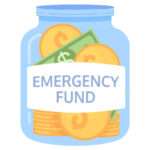In a world where financial transactions are becoming increasingly complex, the ability to effectively manage and expedite payments is crucial. The following comprehensive guide outlines strategies to enhance the efficiency of debt collection. This article is designed to provide general readers with a clear understanding of how to optimize payment collection processes, ensuring quicker and more effective results.
Plan Strategically
Debt collection often starts with a strategic plan. Understanding the debtor’s financial situation, the nature of the debt, and the relationship with the debtor are essential components of this plan. Before taking any action, gather detailed information about the debtor’s payment history and current financial status. This information will help in crafting a personalized approach to collecting the debt. For instance, if the debtor is facing temporary financial difficulties, offering a payment plan might be more effective than demanding immediate full payment. The key is to be empathetic yet firm, ensuring that the debtor understands the seriousness of the situation while feeling supported.
Take Advantage of Timing
Timing can significantly impact the success of debt collection. Act promptly once the debt is overdue. The sooner you initiate contact, the better your chances of recovering the money. Delayed action can lead to the debtor assuming that the debt is not a priority for you, which may result in a more prolonged collection process. Utilize reminders and follow-up communications to keep the debt on the debtor’s radar. Automated reminders through emails or text messages can also be effective in ensuring that the debtor remains aware of their obligation.
Start with a Friendly Approach
Building a positive relationship with the debtor can facilitate smoother debt recovery. Initiate the process with a friendly reminder rather than an aggressive demand. Approach the debtor with respect and understanding, which can lead to a more amicable resolution. For instance, a courteous phone call or personalized letter expressing the importance of settling the debt can often yield better results than an impersonal or confrontational approach. This method not only helps in recovering the debt but also preserves the relationship for future interactions.
Involve a Mediator
Sometimes, involving a mediator can expedite the debt collection process. Mediators or debt collection agencies have expertise in handling such matters and can often achieve quicker results. They have established procedures and legal knowledge that can be leveraged to recover debts more effectively. Choosing a reputable mediator ensures that the process is handled professionally, increasing the likelihood of a successful outcome. Be sure to research and select a mediator with a proven track record in handling similar cases.
Use Effective Communication Techniques
Effective communication is critical in debt collection. Use clear, concise language when discussing the debt with the debtor. Avoid jargon or complex terms that might confuse or frustrate them. Clearly state the amount owed, the due date, and any penalties for late payment. Providing a breakdown of the debt, including the principal amount and any accrued interest or fees, can also help the debtor understand the total amount due. Open lines of communication, where the debtor feels comfortable discussing their payment options, can also facilitate quicker resolution.
Offer Flexible Payment Options
Offering flexible payment options can make it easier for debtors to settle their obligations. Instead of demanding full payment upfront, consider offering installment plans or extended deadlines. This approach not only increases the likelihood of collecting the debt but also demonstrates a willingness to work with the debtor’s financial situation. For example, allowing the debtor to pay in smaller, more manageable amounts over time can make the debt less overwhelming and more feasible to pay off.
Consider Legal Action as a Last Resort
While legal action can be an effective means of recovering debt, it should be considered a last resort due to its time-consuming and costly nature. Before proceeding with legal action, exhaust all other options such as negotiation or mediation. Ensure that you have all necessary documentation and evidence to support your claim if you decide to go to court. Consulting with a legal professional can provide guidance on the best course of action and help you understand the potential outcomes and costs involved.
Use Debt Recovery Software
Utilizing technology can streamline and expedite the debt collection process. Debt recovery software offers various tools and features designed to enhance efficiency. These tools can automate reminders, track payments, and manage communication with debtors. By integrating these systems into your collection process, you can improve organization, reduce manual errors, and increase the speed of debt recovery. Investing in reliable debt recovery software can yield significant benefits in terms of both time and cost savings.
Maintain Strong Record-Keeping
Maintaining accurate and up-to-date records is essential for effective debt collection. Document every communication with the debtor, including phone calls, emails, and letters. Keep detailed records of payment agreements, receipts, and any other relevant documentation. This information not only helps in tracking the debt but also provides evidence in case of disputes. Strong record-keeping practices ensure that you have a clear and organized overview of the debt collection process, facilitating smoother operations.
Educate Clients and Raise Awareness
Educating clients about the importance of timely payments and the consequences of default can help prevent debt issues before they arise. Providing clear terms and conditions regarding payment expectations, penalties for late payment, and the debt collection process can set the stage for successful debt management. Regularly updating clients on their payment status and offering resources or advice on financial management can also contribute to maintaining healthy financial relationships.
Offer Incentives for Early Payment
Offering incentives for early payment can motivate debtors to settle their obligations sooner. These incentives could include discounts, waived fees, or other benefits. For example, providing a small discount for payments made before the due date can encourage debtors to prioritize their payment. This strategy not only helps in accelerating debt collection but also fosters a positive relationship with the debtor by acknowledging their promptness.
Monitor Continuously
Regularly monitoring outstanding debts and payment statuses can help in identifying potential issues early on. Implement a system for tracking overdue accounts and follow up promptly. Continuous monitoring allows you to address any problems or delays in payment before they escalate. By staying proactive, you can maintain control over the debt collection process and take timely action to ensure successful recovery.
Engage Professional Collection Services
Engaging professional collection services can be a strategic move for managing large volumes of debt or particularly challenging cases. These services specialize in debt recovery and possess the expertise and resources needed to handle complex situations. By outsourcing debt collection to professionals, you can focus on other aspects of your business while ensuring that your debts are being pursued effectively. Be sure to choose a reputable collection agency with a strong track record of success.
Build Positive Relationships
Maintaining positive relationships with debtors can enhance the likelihood of successful debt recovery. Approach each situation with empathy and respect, and be willing to negotiate reasonable terms. Building rapport with debtors can lead to more open communication and a greater willingness to cooperate. By treating debtors as valued partners rather than adversaries, you can create an environment conducive to successful debt resolution.
Review and Adapt Strategies
Regularly review and assess the effectiveness of your debt collection strategies. Analyze what works well and identify areas for improvement. Adapting your approach based on these evaluations can lead to better outcomes and increased efficiency. Stay informed about industry best practices and emerging trends to ensure that your strategies remain effective and relevant in a dynamic financial landscape.
By implementing these strategies, you can enhance your debt collection process, achieving faster and more effective results. Adopting a proactive, empathetic, and strategic approach will not only improve your financial outcomes but also foster positive relationships with debtors.









